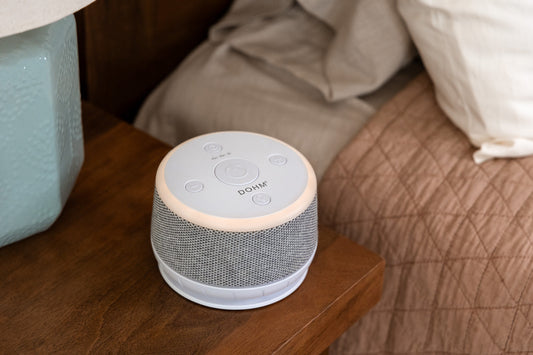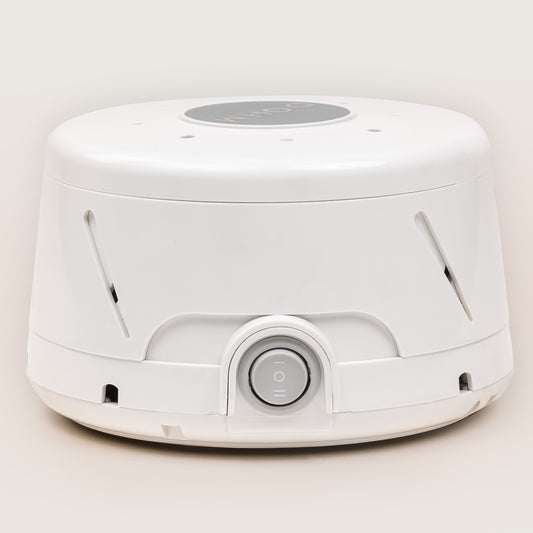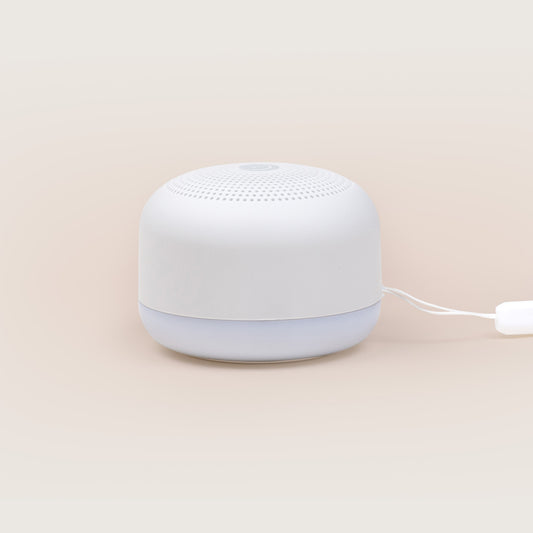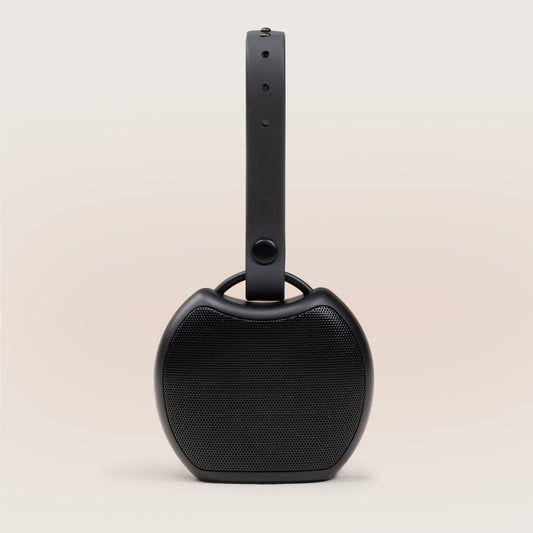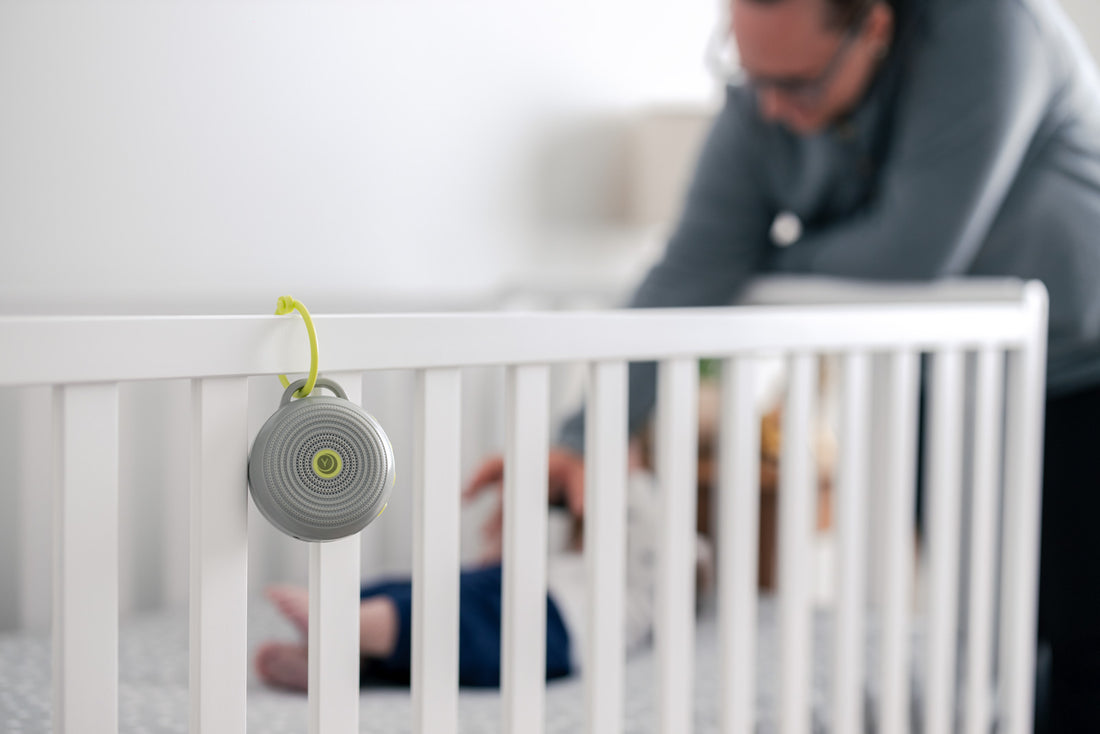
How to Get Your Newborn to Sleep: A Guide to Newborn Sleep for New Parents
Welcome to the world of parenthood, a journey filled with unparalleled joys, new challenges, and yes, a bit of sleep deprivation. If you're reading this, chances are you're cradling hopes of peaceful nights alongside your little one. As a new parent, getting your newborn to sleep isn't just a nightly goal—it's an act of love and care.
We understand that each baby is unique and there's no one-size-fits-all solution. However, with a blend of time-tested strategies and insights into the mysterious world of newborn sleep, we aim to empower you with tools and knowledge to get a fussy newborn to sleep at night. Whether you're wondering why your newborn seems awake when they should be sleepy or looking for the gentlest ways to get your newborn to sleep, we're here to guide you through.
So, take a deep breath--with a bit of patience, a dash of consistency, and a whole lot of love, you'll soon find your way to peaceful nights and joyful mornings with your newborn.
Understanding Newborn Sleep
As new parents, one of the first things you'll notice is that your newborn's sleep patterns are vastly different from yours. Understanding how a newborn’s natural sleep rhythms differ from your own will give you a clearer picture of what to expect as you try to get a newborn to sleep but also guide you in creating an environment and routine that aligns with baby’s natural sleep tendencies. Patience is key; as your newborn grows, their sleep patterns will gradually become more predictable and aligned with the night-day cycle. Remember, this phase, though challenging, is temporary and a normal part of your little one's development.
Newborn Sleep Cycles: A Whole New World
Rapid Eye Movement (REM) and Non-REM Sleep: Unlike adults, newborns spend more time in REM sleep, a phase associated with dreaming. This sleep is lighter and more easily disrupted.
- Shorter Sleep Cycles: Newborns cycle through sleep stages much quicker than adults, typically every 30-50 minutes. This means they may wake up or stir more often.
- Total Sleep Time: On average, newborns sleep about 14-17 hours over a 24-hour period, but this can vary. They haven't yet developed a night-day sleep cycle, leading to irregular sleep patterns.
Normal Sleep Behaviors for Newborns
- Variability is Normal: Some newborns may sleep longer stretches at night early on, while others may take longer to reach this stage.
- Mixed Day-Night Rhythms: It's common for newborns to have their days and nights mixed up, leading to more wakefulness at night.
- Responsive to Hunger and Discomfort: Newborns will wake up frequently due to hunger, the need for a diaper change, or simply seeking comfort.
The Challenge: Why Isn't My Newborn Sleeping at Night?
There are many reasons your newborn baby may seem to be fighting sleep. Some of the most common reasons your newborn is awake and not sleeping are:
- Developmental Milestones: Sometimes, increased wakefulness can be linked to growth spurts or developmental leaps.
- Environmental Factors: Overstimulation, noise, and light can affect a newborn’s ability to stay asleep.
- Physical Needs: Hunger, gas, or discomfort from a wet diaper are common reasons for nighttime awakenings.
Creating a Soothing Sleep Environment to Get a Newborn to Sleep
Creating an ideal sleep environment and establishing a bedtime routine for your newborn are essential steps to ensure they have restful slumber.
The Ideal Sleep Setting
Creating a baby-friendly sleep environment is crucial for your newborn’s rest. The right room temperature can help your baby drift off to dreamland – babies sleep best in a comfortably warm room, so keep your thermostat set between 68-72°F (20-22°C). Use dim lights or blackout curtains to signal bedtime, especially during daytime naps.
The Role of Sleep Aids: The Benefits of White Noise
When it comes to creating an ideal sleep environment for your baby, sleep aids play a pivotal role. Among these, baby white noise machines are particularly effective. Let's delve into the benefits of white noise for your baby's sleep:
The Science of White Noise and Newborn Sleep
- Mimicking the Womb: White noise resembles the sounds your baby heard in the womb, providing a familiar, comforting backdrop.
- Drowning Out Distractions: It helps mask household noises that might otherwise disturb your baby’s sleep.
- Neurological Benefits: The consistent sound of white noise can aid in the development of sleep patterns and cycles in babies.
- Improves Sleep Quality: White noise can lead to deeper, more restful sleep.
- Reduces Sleep Onset Time: It can help babies fall asleep faster by providing a relaxing auditory environment.
- Enhances Sleep Duration: Continuous, rhythmic white noise can help babies stay asleep longer by minimizing the disruptions from sudden or loud external noises.
Establishing a Bedtime Routine for Newborns
A consistent bedtime routine is a comforting ritual for your baby, signaling that it's time to sleep. A bedtime routine not only helps your baby but also provides a structured end to your day. With consistency, your newborn will learn to associate these activities with sleep, leading to easier bedtimes.
Follow the same steps every night to help your baby recognize bedtime.
- Timing: Start the routine at the same time each night, lasting about 20-30 minutes.
- Bath Time: A warm bath can be relaxing and help your baby transition to a sleepy state.
- Gentle Massage: Use baby-friendly lotion for a soothing massage.
- Quiet Activities: Engage in calm activities like reading or softly singing.
- Final Feeding: A last feeding can help your baby sleep through the night.
- Cuddles and Comfort: Spend time cuddling or rocking your baby before bed.
- Flexibility: Be ready to adjust the routine as your baby grows.
- Reading Your Baby's Cues: Pay attention to what soothes your baby the most and adapt accordingly.
Soothing Techniques to Get a Fussy Newborn to Sleep at Night
At times, getting your newborn to sleep might feel like a puzzle. When your little one is fussy, it can be especially challenging. If you can identify the cause of their fussiness as an environmental factor such as discomfort or hunger, address the issue and try again to soothe baby to sleep. However, sometimes a newborn can be fussy due to being over- or under-tired, or for no obvious reason. At those times, it’s helpful to keep a handful of soothing techniques in your toolkit to help calm your baby and ease them into sleep.
Techniques to Calm a Fussy Baby
- Swaddling: Many newborns feel comforted by the snug, secure feeling of being swaddled. It mimics the coziness of the womb and can prevent startle reflexes that might wake them.
- Rocking or Swinging: Gentle, rhythmic motion is a time-tested soother. Whether it's in your arms, a baby swing, or a rocking chair, the steady movement can lull babies to sleep.
- Pacifiers: For some babies, sucking on a pacifier can be incredibly soothing and help them drift off to sleep.
Some babies respond better to certain techniques than others. Pay attention to how your baby reacts and adjust your approach accordingly. While it's important to comfort your baby, becoming overly reliant on certain aids (like rocking or feeding to sleep) can create sleep associations that may be challenging to change later on.
The key to these soothing techniques is to find what works best for your baby and use them as tools within your broader sleep strategy. Every baby is unique, and what soothes one might not be as effective for another. Through trial and error, and a lot of patience, you'll discover the best ways to comfort your baby and help them settle into a peaceful sleep.
When to Seek Help Getting Your Newborn to Sleep
If sleep issues persist well beyond a typical sleep regression period or there are other concerns, like significant changes in daytime behavior, consult your pediatrician. Navigating newborn sleep can be a complex journey, and it's important to know when to seek professional guidance. As a parent, you know your baby best. If something feels off, even if it's not clear-cut, seeking advice can provide peace of mind or early intervention.
If your baby consistently struggles with falling or staying asleep, despite trying various techniques and routines, it may be time to consult a professional. If your baby is excessively fussy, especially around sleep times, and you can't seem to soothe them, this could indicate underlying issues that a professional might need to address.
Your baby’s pediatrician is your first line of support if you continue to struggle to get your newborn to sleep. They can rule out any medical issues and provide guidance on normal sleep patterns and development. Additionally, you can seek help from child sleep consultants– professionals who specialize in infant and toddler sleep. They can offer tailored advice and strategies based on your baby's specific needs and your family’s situation.
The Key to Newborn Sleep: Consistency, Patience, and Cuddles
As you apply these tips and strategies, remember that patience and consistency are your best allies. Every baby is unique, and what works for one may not work for another. It's about finding what suits your baby and your family best. The road to restful nights can have its bumps, but with each passing day, you and your baby are learning and growing together.
Remember that you're not just navigating the world of sleep; you're also building a foundation of love, trust, and security for your baby. Each step you take, each gentle lullaby sung, and each soothing cuddle in the night contribute to this beautiful journey of new parenthood.



